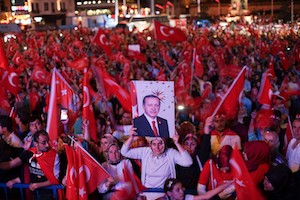Will the Kurdish Question Secure Erdoğan's Re-election?
By Halil Karaveli
June 18, 2018
The Kurdish question may serve President Recep Tayyip Erdoğan, helping to secure his re-election. The election campaign has demonstrated that Erdoğan no longer energizes the masses; after fifteen years in power, the Turkish president shows every sign of being worn out. He is no longer an inspirational leader; he has nothing new to say or to promise. But Erdoğan nonetheless retains the loyalty of the AKP base. And as the spokesperson of the nationalism of the Turkish state he is assured of enough non-partisan support as well.
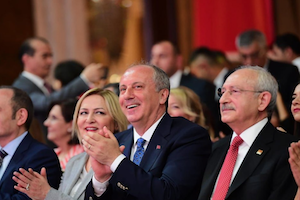
Social Democracy - The Way Out of Turkey's Impasse?
By Thomas Helm
April 16, 2018
A new focus on everyday economic and labour issues as part of a wider call for social democracy that transcends identity politics could serve as a new rallying cry in Turkish politics. At the moment there is a significant gap. While the ruling Justice and Development Party (AKP) continues to push its pro-business and anti-worker policies, the officially social democratic opposition party, the Republican People’s Party (CHP) has been reluctant to speak out against the widespread labour injustice, preferring to focus on issues of democracy and corruption. Social democracy as a broad coalition between lower- and middle-income groups that transcends identity politics would also help secure democracy in Turkey.
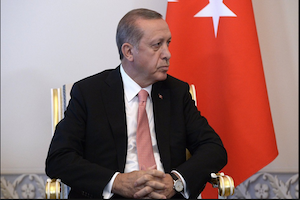
Momentum, Societal Militarization and Erdoğan's Forever Wars
By Gareth H. Jenkins
April 3, 2018
The conquest of Afrin in northwest Syria has boosted President Erdoğan’s popular support and raised expectations amongst his supporters at a time when they already believe that they are active participants in a sacred struggle. But, with Russia, Iran or the US expected to block any further attempts at major territorial acquisitions in Syria or Iraq, Erdoğan is running out of options and in danger of losing electoral momentum long before Turkey is due to go to the polls in November 2019.
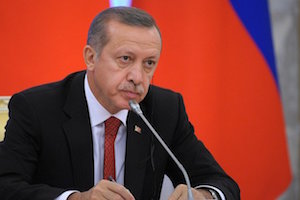
A "Eurasian Turn" in Turkish Foreign Policy? Not Likely
By Toni Alaranta
January 31, 2018
No substantial “Eurasian turn” of Turkish foreign policy is likely – or at any rate likely to be lasting. However, the deterioration of the Turkish-Western relations has nonetheless helped bring about an unholy alliance of various “anti-Westernists,” secularist-nationalists and Islamists, which is anything but insignificant in terms of domestic politics. The regime has been bolstered, as it can now count on being supported by at least some secularist nationalists in the name of “anti-imperialism.”
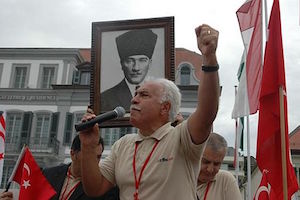
Turkey's Toxic Mix: Fear, Loathing and the Empowerment of Paranoia
By Gareth H. Jenkins
January 22, 2018
The combination of the growing sense of empowerment amongst supporters of the Turkish government and the recent proliferation of reports that they are arming and organizing has reinforced concerns about not only the rule of law but also the risk that the country’s already severe social tensions may lead to communal violence.
